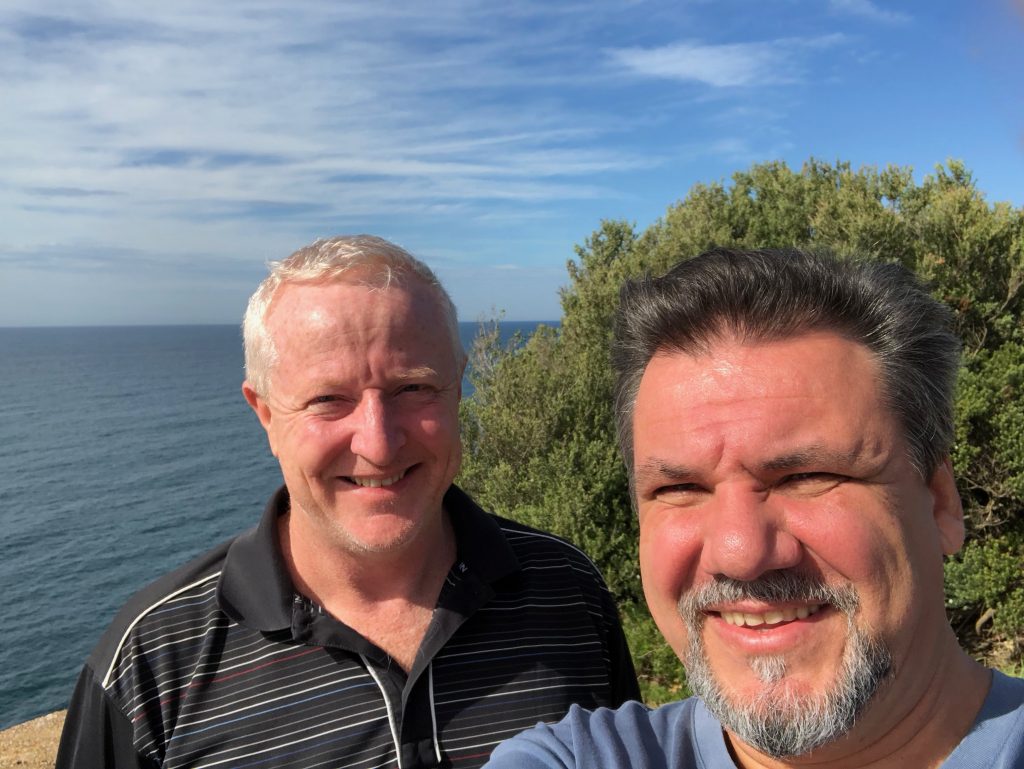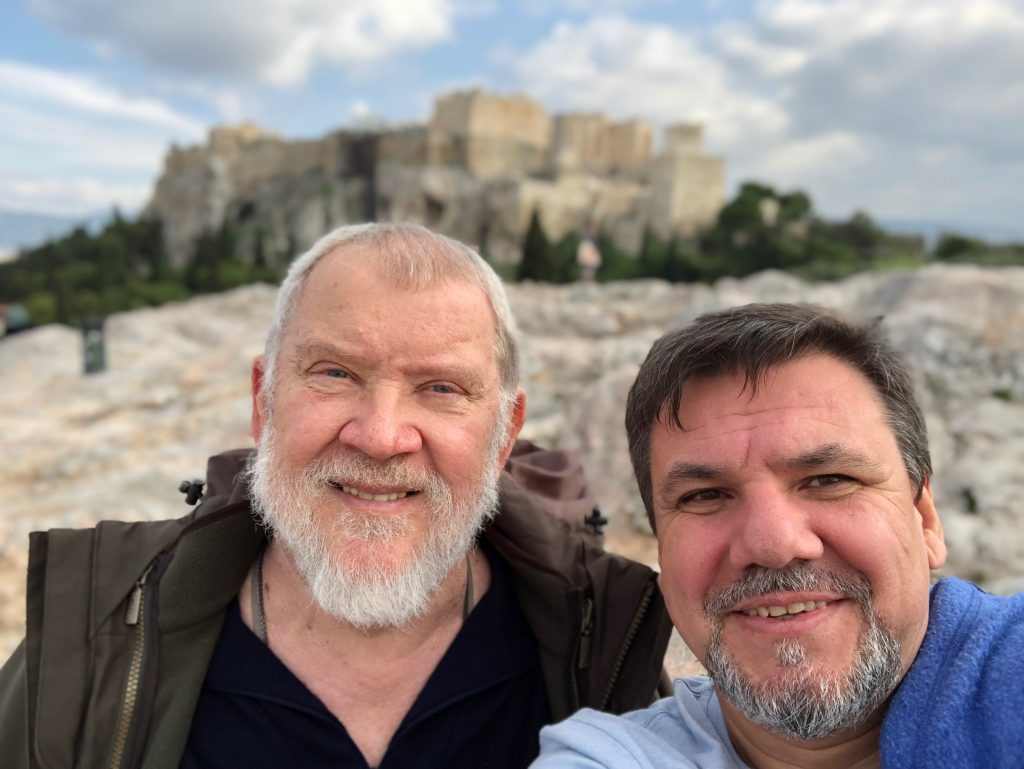Fasting times such as the one in preparation for Christmas present us with complex challenges. Whereas the “first world” mentality and perhaps the overall human psyche complacently treasure the quiet of routine, the familiarity of things known and done, fasting times call us to personal renewal by way of breaking the routine. Fasting times entail to think and live out-of-the-box. They challenge us to reinvent ourselves, as Saint Basil the Great would have it, by way of liberating spiritual exercises. Fasting is, therefore, a matter of testing and tasting freedom. It is to this end that we change habits, from dietary to all aspects of life, in order to prove to ourselves that we can and that we are free, not slaves to our routine. Part and parcel of this overhaul of our existence is the usually unnoticed matter of “spiritual conferences.” At least this is how the early Christian ascetic tradition termed this exercise through the Dacian monk Saint John Cassian, later to be presented in the sophisticated works of the Palestinian monk Saint Maximus the Confessor as “thorough examination [of a topic] together with others” (which is a mouthful of words trying to render the Byzantine Greek term συνεξέτασις). In short, fasting requires also to change the topic and talk about profound matters, abandoning the customary clatter of the shallow everyday business. Foremost, it requires to do so in the company of likeminded travellers.
Examples of this kind of spiritual exercise abound within the tradition. Think of Saint Paul’s repeated exhortation that Christians ponder things on high, comforting one another by exchanging wisdom and, refraining from bad words, expressing themselves by way of singing psalms and praises. Think of that Egyptian desert elder, Abba Poemen, who turned his back to visitors who kept prattling dubious metaphysics, but turned towards the same visitors when they, getting his point, changed the subject and addressed “matters of the soul,” namely, when they redirected their gaze towards themselves in order to mend their shortcomings. Think also of the evening spiritual conversations between elders and disciples in the early days of the Christian monastic movement, before the time when this exercise was replaced by the educated noise of endless services. What matters is that we, too, change the topic and instead of politics—including its worst, ecclesiastical variety—or money, or the sports, or the latest “smart” gizmos, or the acquisition of property, or the sins of the neighbour, or good causes etc, talk about “matters of the soul.” Fasting is to think and speak in order to discover who we are, where we are at, and what the necessary steps are for us to fulfil our Christian destiny, namely, to become God’s children and inheritors of the eternal life.
The best way to do so is by exercising spiritual conversation. It seems to me that most people, including Christians, particularly Orthodox Christians, have lost this skill and interest. In all honesty, everywhere I turn I hear anything but spiritual conversations. Saint Paul believed that Christians, as disciples of Christ’s supreme philosophy, were supposed to talk spiritually among themselves, leaving all empty words for the outsiders whose interest missed the mark of the self and its transformation. The anonymous early Christian author known as the Disciple, writer of the elegant Letter to Diognetus, believed that the hallmark of Christians was their focus on spiritual matters, as opposed to the dispersion experienced by worldly people. But we, contemporary Christians, prefer to “fit in” and waste our lives in chatter. One’s life cannot remain unaffected by this trend. One diminishes directly proportional to the time one allocates for meaningless talk. I too have been drawn into the whirlpool, though not out of ignorance; the resistance of people to anything but futile conversation often makes impossible for me to address “matters of the soul.” Long ago, in a galaxy far, far away, one of my mentors incessantly iterated that our time is one of spiritual want and that this is obvious in the absence of true spiritual guides, whether mothers or fathers in Christ. I agree that ours is a time of spiritual poverty, even though many long beards claim to embody philosophy and therefore to fill the vacuum. That said, my view is that genuine spiritual fathers and mothers cannot emerge unless most of us turn from vain talk to spiritual conversation. No matter how good the spiritual guides may be, they will inevitably decline when the tide of senseless chatter keeps rising around them. True, one could simply step back from it—as one does, not unprofitably in fact. But the present time is another opportunity for fasting. People should turn back from worldly worries to “matters of the soul,” beginning to mend their weaknesses by way of spiritual conference and the appropriate praxis. Sometimes we call spiritual conversation confession. Regardless of how we call it, it should just take place, as part and parcel of the fasting exercise.
The reader should understand that the present reflection comes out of my own experience and sheer concern. I noticed the danger awhile ago and consequently I have applied the strategy of isolation, thank God, with some success. But recently I have been blessed to encounter two people with whom I was able to engage in spiritual conference or συνεξέτασις. One is a Wesleyan Methodist pastor. The other one is an Orthodox emeritus professor of philosophy. With the first one I meet quite often, given that we live in the same area of Sydney’s Northern Beaches. With the second one I met only once face-to-face, and I pray that we find a way to continue the conversation; he lives in North America. With both I was able to openly address, after many years and apart from my own confessions, “matters of the soul.” That one belongs to a different ecclesial family has not hindered our conversation at all. With both I can breathe freely, much as I do when I talk to my own spiritual father, himself living in Romania, for they are interested in what C. S. Lewis termed “mere Christianity.” Here, by this phrase I understand a return to things that matter from things that matter not. The presence of these “mere Christians” and likeminded travellers is what triggered my realising how dangerous it is to restrict interpersonal communication to chatting for socialisation sake or even professionally, and how counterproductive it is not to engage in spiritual conference. It is for this reason that I write, as a wake up call for whomever has ears to hear and a mind to understand. The present fast is an opportunity to change, particularly the way we talk, what we talk about, and with whom we do that.
We should use this time wisely, breaking the routine. We should cherish our “mere Christianity,” the privileged way towards ourselves—in order to discover who we are, where we are at, and what the necessary steps are for us to fulfil our Christian destiny, namely, to become God’s children and inheritors of the eternal life.

With Revd Dr Lex Akers. Mona Vale Head, Mona Vale, NSW Australia. 4 May 2018.

With Emeritus Professor Bruce Seraphim Foltz. Areopagus, Athens, Greece. 3 December 2018.
12 December 2018 © AIOCS
